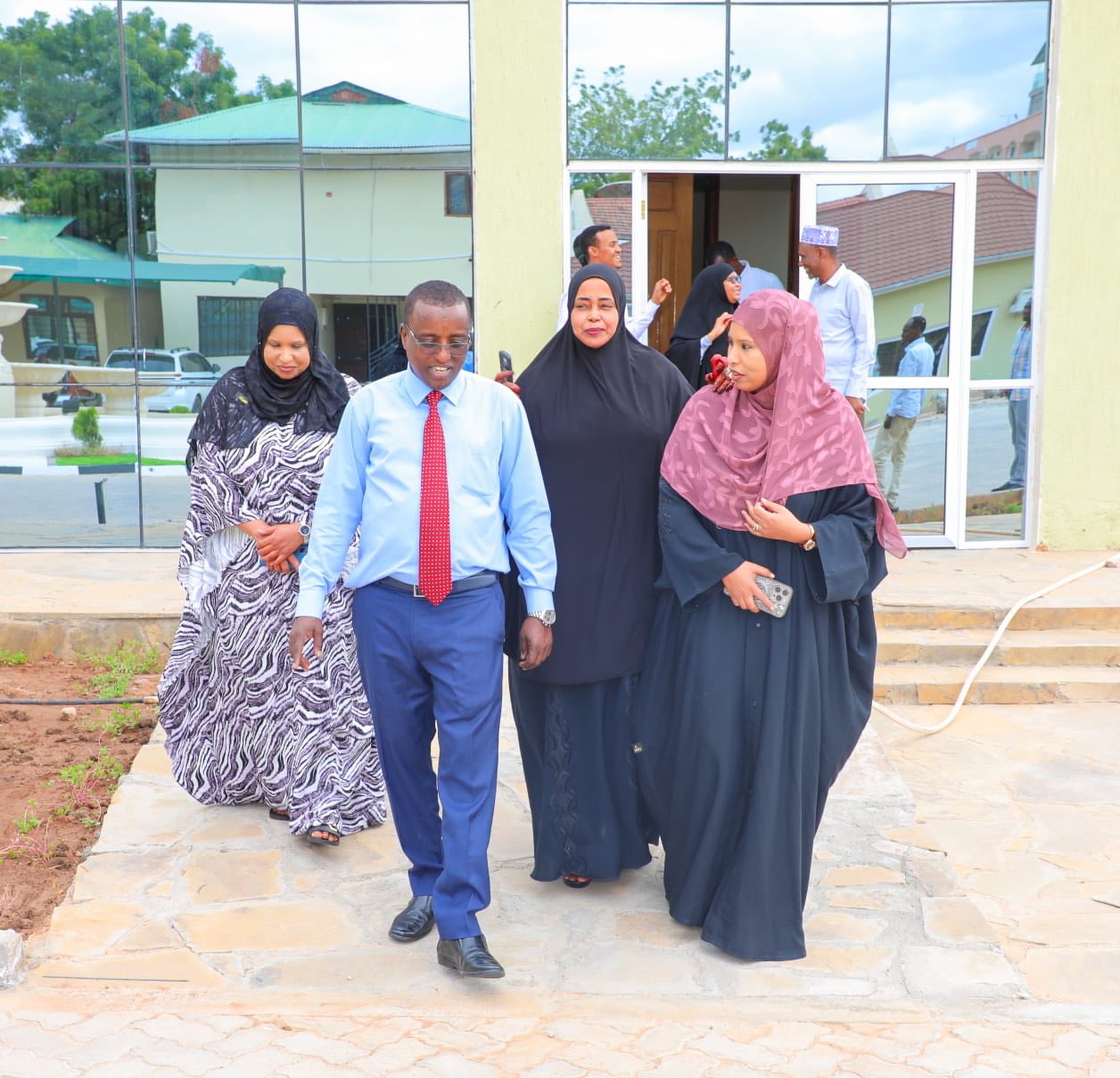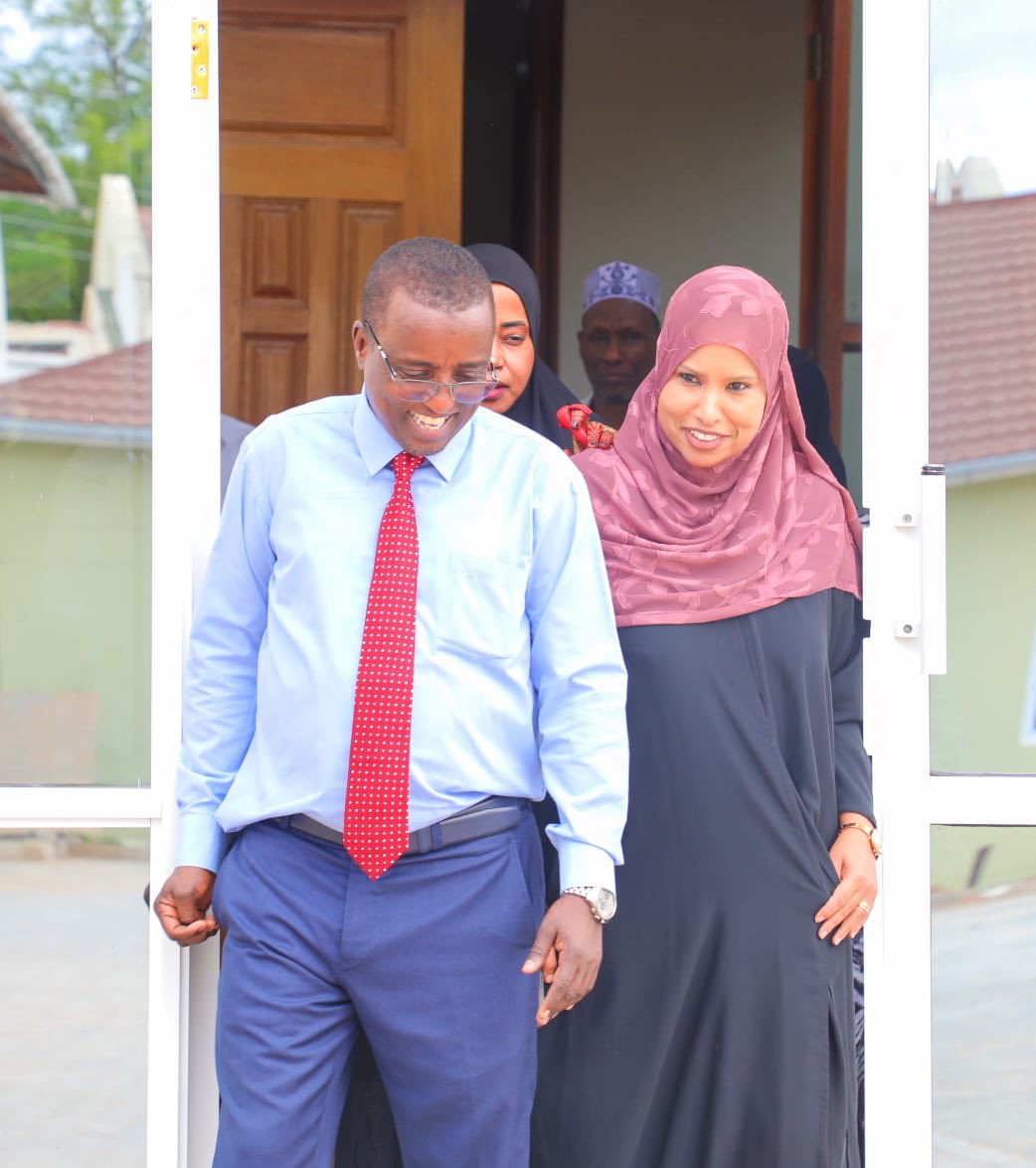
 East African Legislative Assembly (EALA) MP Falhada Iman
with Garissa Garissa County Assembly speaker at the newly constructed Garissa
County Assembly complex./STEPHEN ASTARIKO
East African Legislative Assembly (EALA) MP Falhada Iman
with Garissa Garissa County Assembly speaker at the newly constructed Garissa
County Assembly complex./STEPHEN ASTARIKO East African Legislative Assembly (EALA) MP Falhada Iman
with Garissa Garissa County Assembly speaker at the newly constructed Garissa
County Assembly complex./STEPHEN ASTARIKO
East African Legislative Assembly (EALA) MP Falhada Iman
with Garissa Garissa County Assembly speaker at the newly constructed Garissa
County Assembly complex./STEPHEN ASTARIKOEast African Legislative Assembly (EALA) MP Falhada Iman has condemned what she described as persistent harassment of women in Garissa who use boda bodas for transport.
Speaking to journalists in Garissa town after paying a courtesy call on County Assembly Speaker Abdi Idle, the legislator said she had received numerous complaints from Somali women being shamed and intimidated simply for boarding boda bodas.
“It is heartbreaking and infuriating that in 2025, some men still feel entitled to comment, shame, and mock women for their personal choices, all while misusing religious justifications,” Falhada said.
She stressed that Islam does not give anyone the license to harass or control women in the name of morality, adding that the faith instead teaches respect, modesty, and restraint.
“Women are not public property. Somali ladies, like any other women, have the right to move freely, with dignity, and without fear of judgment by self-appointed moral police,” she said.
The former Senator warned that if the harassment continues, she will escalate the matter to the National Cohesion and Integration Commission (NCIC), religious councils, and security agencies.
“To the men doing this—your actions are not rooted in faith; they’re rooted in arrogance and misogyny. You should be ashamed,” she added.
Her remarks come amid a long-running debate in parts of northeastern Kenya over whether boda bodas are appropriate for women.
Traditional Somali and Islamic customs discourage close physical proximity between unrelated men and women, and riding pillion behind a male driver is often seen as improper.
In March, prominent Garissa cleric Sheikh Hassan Amey told worshippers during Eid prayers that Somali or Muslim women should not board boda bodas. He warned that any woman caught riding on one, along with the rider, should be caned.
The statement drew sharp criticism from rights groups and members of the public, who accused him of promoting sexism and discrimination.
The National Gender and Equality Commission (NGEC) condemned his remarks, calling them unconstitutional and in violation of Article 27 of the Constitution, which guarantees equality and freedom from discrimination.
“Leadership demands restraint, respect for diversity, and the promotion of unity—not incitement or cultural policing,” NGEC said in a statement on.











